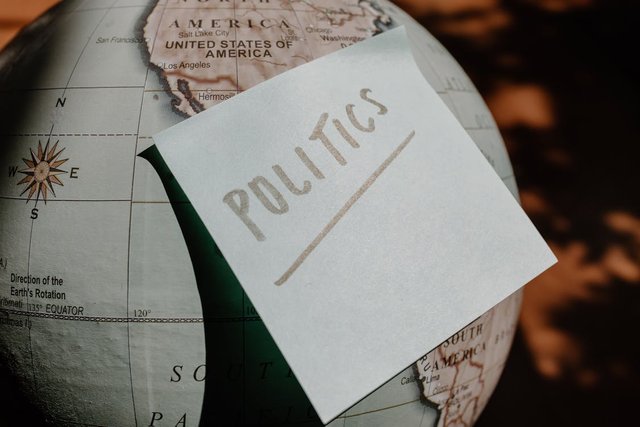DiGinnasio | Is it fair to exclude Russian nationality participants (or Russian teams) from various competitions?

Italian translation below~~
Is it fair to exclude Russian nationality participants (or Russian teams) from various competitions?
Well, I'll keep this short. So much has already been said. I'm afraid that saying more would make me too obvious...
It seems that politics has taken hold of (or contaminated?) everything. It’s evident; whether we actively engage in it or not, it's always present, influencing our lives in both significant and subtle ways. It isn’t just abstract ideas—we live its reality.
I once read that our choices aren’t always about facts; they are about our interests. Self-preservation – we do what we think will keep our lives stable. We’re flawed creatures. Sometimes idiotic (let’s be real, we all seem like idiots to someone at some point).
Now, the question is, do you think it is fair for athletes or other representatives of a particular nation judged responsible for triggering conflict to pay for political choices?
First, the ideal approach would be to check the veracity of what is being claimed here. Was it Russia that triggered the war? Maybe, maybe not. To get to the truth, we ought to look at it from more than one viewpoint. We cannot hope to understand—let alone verify it—if we look at it through the eyes of only one man or one media outlet or a single prevailing narrative. However, as mentioned earlier, our choices aren’t always about facts…Perhaps someday, when we learn how to run a business, we’d probably understand why money often trumps ethics.
But, to answer the question without being religiously bureaucratic: Definitely unfair. No country is a virgin Mary. We’ve all had history of crime and violence. So, what about those nations who committed heinous crimes within their own borders but was lucky enough to escape scrutiny simply because they weren’t in the media spotlight? This is a skewed sense of fairness—where the application of rules is selective.
Another question:
Do you consider correct the choice made by some sports disciplines, to admit Russian athletes equally, but only without identifying them with their nation's flag?
In my opinion, It’s akin to being permitted to take an exam but having to omit your name – and your school’s. You compete not only for personal achievement but to tie it to national pride (or geopolitical narratives). Without this connection, what are we competing for?
ITA
È giusto escludere i partecipanti di nazionalità russa (o le squadre russe) da varie competizioni?
Sembra che la politica si sia impossessata (o abbia contaminato?) di tutto. È evidente; che ci impegniamo attivamente o meno, è sempre presente, influenzando le nostre vite in modi sia significativi che sottili. Non si tratta solo di idee astratte: noi viviamo la sua realtà.
Una volta ho letto che le nostre scelte non riguardano sempre i fatti, ma i nostri interessi. Autoconservazione: facciamo ciò che pensiamo possa mantenere stabile la nostra vita. Siamo creature imperfette. A volte idiote (siamo sinceri, tutti sembriamo idioti a qualcuno prima o poi).
Ora, la domanda è: pensate che sia giusto che gli atleti o altri rappresentanti di una particolare nazione giudicata responsabile di aver scatenato un conflitto paghino per le scelte politiche?
In primo luogo, l'approccio ideale sarebbe quello di verificare la veridicità di quanto viene affermato. È stata la Russia a scatenare la guerra? Forse sì, forse no. Per arrivare alla verità, dovremmo guardare la questione da più punti di vista. Non possiamo sperare di capirla - e tanto meno di verificarla - se la guardiamo con gli occhi di un solo uomo o di un solo media o di un'unica narrazione prevalente. Tuttavia, come già detto, le nostre scelte non sono sempre legate ai fatti... Forse un giorno, quando impareremo a gestire un'azienda, capiremo perché spesso il denaro ha la meglio sull'etica.
Ma, per rispondere alla domanda senza essere religiosamente burocratici: Decisamente ingiusto. Nessun Paese è una vergine Maria. Tutti abbiamo avuto una storia di crimini e di violenza. Quindi, che dire di quelle nazioni che hanno commesso crimini efferati all'interno dei loro confini, ma che hanno avuto la fortuna di sfuggire al controllo semplicemente perché non erano sotto i riflettori dei media? Questo è un senso di equità distorto, in cui l'applicazione delle regole è selettiva.
Un'altra domanda:
Ritiene corretta la scelta di alcune discipline sportive di ammettere ugualmente gli atleti russi, ma solo senza identificarli con la bandiera della loro nazione?
A mio avviso, è un po' come essere ammessi a sostenere un esame ma dover omettere il proprio nome - e quello della propria scuola. Si compete non solo per i risultati personali, ma anche per legarli all'orgoglio nazionale (o a narrazioni geopolitiche). Senza questo legame, per cosa stiamo gareggiando?
Tradotto con DeepL.com (versione gratuita)
I think that in any tense situation that could lead to war or has already done so, EVERY diplomatic means should be used to end that situation. Sport, common sport, fair and peaceful competitions, are a very successful diplomatic means to calm the waves, to postpone conflicts. They do not take place at the negotiating table, but in front of a very large auditorium. Sport can build bridges; exclusion tears them down...
0.00 SBD,
0.55 STEEM,
0.55 SP
This would have been the perfect closing remark. I agree, but perhaps the reason they don’t want to end that situation is that war has become a lucrative business.
You’re right, but unfortunately, for those sports organizers who prioritize audience revenue, I think peace is not always in their best interest...
0.00 SBD,
0.87 STEEM,
0.87 SP